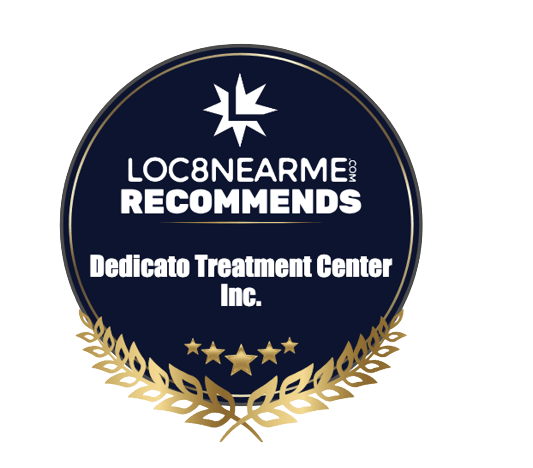Back-to-school season can be an exciting time, but for many students and parents, it also brings stress, anxiety, and pressure. With busy schedules, academic demands, social expectations, and emotional changes, it’s no surprise that some young people turn to unhealthy ways of coping, like drugs or alcohol.
Understanding the connection between stress management and substance abuse is the first step toward helping families handle this challenging time. With the right support, tools, and access to quality addiction treatment, both students and parents can face back-to-school stress in a healthy, positive way.
In this guide, we’ll explore how stress can lead to substance use, signs to look out for, and how the best addiction treatment center in Pasadena and surrounding cities can help.
Why Is Back-to-School Time So Stressful?
Going back to school isn’t just about buying notebooks and backpacks. It’s also about:
- Adjusting to a new schedule
- Meeting new teachers and classmates
- Handling more homework and tests
- Coping with peer pressure or bullying
- Trying to fit in and succeed socially
- Managing sports, clubs, and other responsibilities
For parents, the stress may come from:
- Worrying about their child’s success and safety
- Juggling work and family responsibilities
- Financial stress due to school-related costs
- Less time for family connection or communication
When stress builds up and there’s no healthy outlet, students (especially teens and college-age young adults) may try to escape using alcohol, vaping, or drugs.
How Stress and Addiction Are Connected?
When someone feels stress, the body releases a hormone called cortisol. This helps in short bursts, but when stress is constant, cortisol levels stay high and lead to anxiety, trouble sleeping, and emotional overwhelm.
To escape these feelings, some turn to substances that seem to offer relief. At first, the drug or alcohol may make them feel calm, happy, or more in control. But over time, it creates more problems, including addiction.
This is why stress management is a key part of addiction therapy. If we don’t learn healthy ways to cope, unhealthy habits can take over.
Common Signs of Substance Use in Students
Parents and teachers should know about these warning signals:
- Sudden changes in mood or behavior
- Drop in grades or skipping school.
- Secretive actions or lying about whereabouts
- Smell of alcohol or smoke on clothing
- Bloodshot eyes or frequent tiredness
- A new group of friends who seem reckless
- Loss of interest in hobbies or family time
If you notice any of these, don’t ignore them. Early support can prevent long-term harm. Reach out to an addiction treatment center that works with teens or young adults.
How Parents and Students Can Cope Together?
Coping with stress—and avoiding substance abuse—takes teamwork. Here are some ways parents and students can support each other:
1. Talk Openly and Often
Have regular conversations that are honest, non-judgmental, and supportive. Let your child know it’s okay to talk about stress, pressure, or mental health. Ask how they’re feeling and truly listen.
When there’s trust at home, kids are more likely to open up and less likely to hide problems.
2. Teach and Practice Healthy Stress Management
Help your child learn simple ways to manage stress, such as:
- Deep breathing or meditation
- Exercise, like walking, yoga, or sports
- Getting enough sleep
- Journaling or talking to a trusted friend
- Taking breaks from screens and social media
Make these habits part of your own life, too. Children often do what they see, not only what they hear.
3. Watch for Burnout and Create Balance
Many students today feel they have to be perfect. They try to do well in school, be popular, play sports, and make everyone happy. This leads to burnout.
Encourage balance. Tell them that this is not to say, take a break, and ask for help. Focus on progress, not perfection.
4. Create a Supportive Home Environment
A calm, loving home can protect against stress and addiction. Try to:
- Eat meals together regularly
- Keep routines consistent
- Celebrate small wins
- Spend quality time without distractions.
- Set clear but fair rules.
If things feel too difficult to handle alone, getting help from an addiction therapy center can give the whole family the tools to heal and grow stronger together.
5. Get Professional Help When Needed
Sometimes, talking and home support aren’t enough. That’s okay. If your child is showing signs of substance abuse or is overwhelmed by stress, it’s time to consider addiction treatment services in California.
Whether it’s individual therapy, group sessions, or family counseling, professional help can make all the difference.
What to Expect from an Addiction Treatment Center?
The best addiction treatment centers in Pasadena and surrounding cities and throughout California understand that every young person is different. A good center will offer:
- Personalized treatment plans – based on the student’s age, needs, and goals
- Licensed physician and counselor – trained in addiction and mental health
- Group and family therapy – so parents and kids heal together.
- Life skills training – To build confidence, communication and copy skills
- Stress management education – to help students face life’s pressures without turning to substances
Many centers also work around school schedules and offer programs after school or during holidays, so students don’t fall behind academically.
Why Choose a Center in California?
California has some of the top-rated addiction treatment programs in the country. Whether you live in Los Angeles, Pasadena and surrounding cities, or another area, you’ll find a variety of options to fit your family’s needs and budget.
These centers combine expert care with a calm, supportive environment—perfect for students who need to reset, recover, and build healthy habits.
If you’re looking for trusted care, start with the best addiction treatment center in Pasadena and surrounding cities or browse statewide addiction treatment services in California to find a fit that works.
Prevention Is Better Than a Cure
Even if your child isn’t using substances, building strong mental health now can protect them in the future. It’s never too early—or too late—to talk about stress and teach healthy coping skills.
Parents should also look after their own stress and well-being. A calm, steady parent is better able to support a stressed-out child. If needed, join a parent support group or talk to a counselor yourself.
Final Thoughts
Back-to-school season should be a time of growth, learning, and hope. But when stress becomes too much, it can lead to dangerous coping methods like substance use. That’s why understanding the link between stress and addiction is so important.
With the right tools, open communication, and access to trusted resources like Dedicato Treatment Center, one of the leading addiction treatment centers in California, families can manage back-to-school stress in a healthy, healing way.
Remember, you’re not alone. Help is out there for both students and parents. Together, with love, patience, and support, families can stay strong and healthy during one of the busiest times of the year.
















